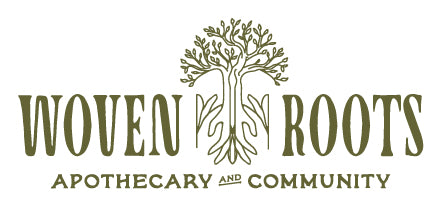
I think the creator of the above post I came across on Facebook was genuinely just trying to offer some information about gardening, a gentle reminder that if something (or someone) is eating your plants,
-that doesn’t mean you’re doing anything wrong. There’s nothing to be ashamed of.
-and that may actually be an indicator that your plants are part of a healthy and alive ecosystem, and something to be accepted, or perhaps celebrated. As a gardener, you are participating in an ecosystem, a web of life governed by connection and interdependence.
But I see within this image a metaphor, a gentle reminder for all ecosystems. From gardens to civilizations, life emerges and sustains through connection.
On the one hand, I understand how it makes sense to want to nourish and encourage life in one’s garden through protection, but too often that protection comes with the cost of separation. Plants depend on rich, healthy soil. Rich and healthy soil depends on the presence of organic life, such as microbes, worms, and rolly-pollies. Common practices like applying pesticides kill the many living things in the soil, removing them from the ecosystem and thus separating them from the plants with whom they are interwoven, and setting off a chain of events that weakens the ecosystem’s capacity to flourish.
I see so many parallels in communities, human ecosystems. As humans, we are hard-wired to protect ourselves, but sometimes we over-prioritize protection to the extent of creating separation. In many instances, to avoid emotional pain or conflict, a person isolates or turns away from particular relationships or experiences. But while this may temporarily relieve the sting of what’s “eating” us– challenges, differences, disagreements– this kind of separation ultimately leaves us plagued by loneliness and correlated emotions/states (which we are now learning is everything from anxiety and depression to decreased immunity and heart problems).
When we focus on the pristine appearance of a garden or the flourishing of certain plants, we risk missing the significance of the health and function of the ecosystem with which the plants are connected. Similarly, when we prioritize or privilege the feel-good kinds of connection, we risk missing opportunities to cultivate strength and resilience within our communities. Within the dynamic dance of protection and connection, ecosystems of all kinds thrive.
Next time something is “eating” me up, I’m going to look to the wisdom of the garden and remember sometimes that something eating me
-is nothing to be ashamed of
-and probably means that I am engaged and connected in something complex and alive, something to be accepted and yes, even celebrated. As a human, I am participating in an ecosystem, a web of life governed by connection and interdependence.
And rather than turning to any emotional pesticides that create separation, I will reflect on how whatever it is might actually help grow and nourish deeper connections, strengthening my own ecosystems, human and beyond.
Image credit: Collective Conservation (https://www.facebook.com/1CollectiveConservation1)
Join the Conversation: What does resilience mean to you? How do you experience or assess the resilience of the ecosystems you are a part of? Let us know your thoughts in the comments below.

